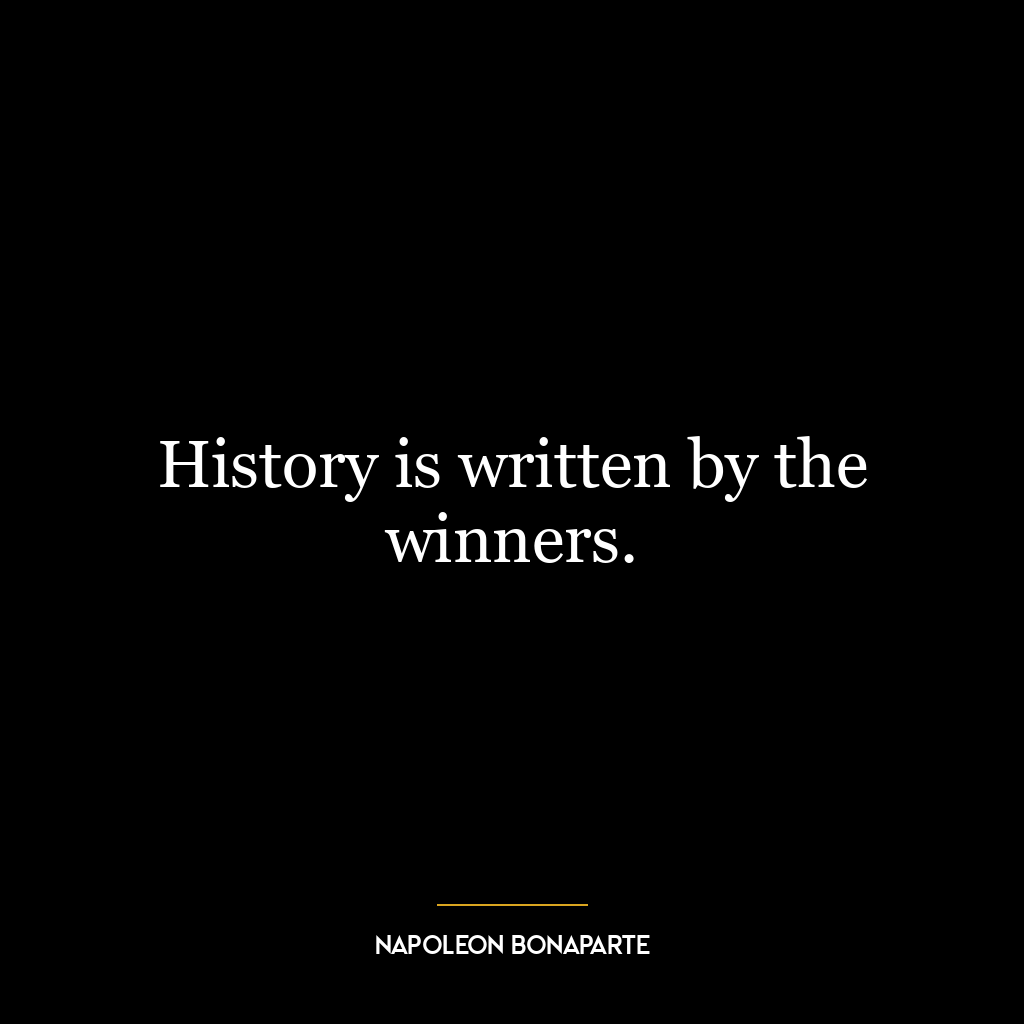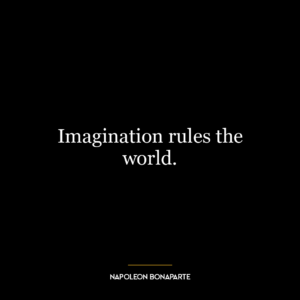History is written by the winners.
“History is written by the winners,” is a quote that encapsulates the idea that those who emerge victorious in conflicts have the power to shape historical narratives in their favor. This concept is often referred to as ‘victor’s justice’ or ‘history from above’. It suggests that the victors can distort or omit certain events, perspectives, or truths to maintain their image, justify their actions, or to further their own agendas.
This quote is not just about literal wars or battles, but also applies to ideological, political, or cultural clashes. The ‘winner’ could be a dominant culture, a political party, or even a successful company. The narratives they create can shape public opinion, influence future events, and even determine what is considered ‘common knowledge’ or ‘truth’.
In today’s world, this concept is particularly relevant in the context of media, politics, and education. For example, in the media, the narratives presented often reflect the views of those in power or those who control the media outlets. Similarly, in politics, the party in power can influence how events are recorded and remembered. In education, the curriculum often reflects the dominant culture’s perspective and can overlook or marginalize other viewpoints.
In personal development, this quote could be interpreted as a reminder to question the narratives we accept as truth. It encourages individuals to seek multiple perspectives, especially those of the ‘losers’, or the marginalized and less powerful. This can lead to a more nuanced understanding of the world and foster empathy and critical thinking. It also serves as a reminder that success often brings the power to shape narratives, which comes with the responsibility to present a balanced and fair account.
In conclusion, “History is written by the winners,” is a powerful reminder of the influence of power on narratives, the importance of critical thinking, and the responsibility that comes with success.












